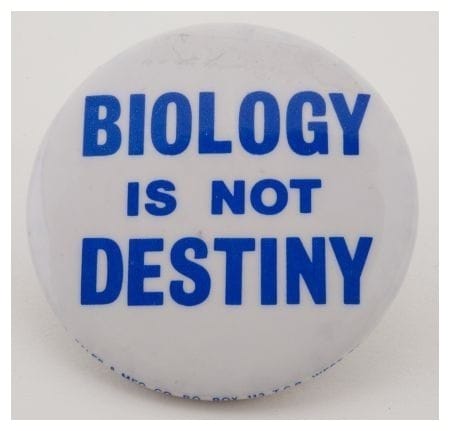WHRC and “trans genocide”
Dissenting from the current pop TERFwatching terminology
This discourse is taking off and I have a degree of responsibility as one of the researchers who first flagged up WHRC’s trans-eliminationist approaches to speak up on this one.
I don’t think the language of “trans genocide” is especially useful. I feel that it is an open goal for our opponents who are able, trivially, to make clear that they don’t intend to send us to camps, nor to subject us to summary execution. There are many other forms of genocide, including forced removal of ethnic groups from a particular geographic area, cultural genocides that destroy the cultural history and knowledge of a people, attempts to cleanse ethnic groups and cultures by “breeding them out”, or via forced adoptions.
None of these terms really usefully applies to the forms of elimination which WHRC and other groups have in store for us. In my view, the reason why genocide isn’t used to describe the vast majority of real world anti-trans exterminatory violence is because genocide was coined to discuss ethnic and cultural destruction. It’s just not a word that has a lot of explanatory power for the targetting of trans people because we can’t be exterminated that way. We are certainly subject to attempted eugenics (including trans men who have frequently been subject to demands they exchange their reproductive capacity for rights), but what would it even mean to describe trans people as “a people” or “a culture” when we’ve existed in trans ways in numerous different cultures (many of which have been subject to genocide, including efforts to eradicate indigenous cultures embracing forms of gender diversity).
It worries me that talking about genocide when what we mean is efforts to suppress trans people, and particularly trans women as an underclass within society, we both muddy existing conversations about the impacts of genocide culturally on different forms of trans/gender diverse expression globally through imperialism and at the same time open up a debate about what the meaning of genocide should be that we are probably too busy to afford ourselves the luxury of.
In countries where honour killings and vigilante murders of transgender women are commonplace, we don’t normally describe this as a genocide. Why not? We do use the term transfemicide (certainly transfeminists in Latin America do). So why aren’t we describing groups like WHRC as transfemicidal? There is certainly murderous sentiment in the anti-trans feminist movement on occasion. How else can we describe people describing us as parasitically occupying womanhood (and it is specifically trans women who are treated this way). Or calls by Lily Cade to have us executed en masse. But trans people (by which I mean people who grow up to defy a Western male/female sexual dichotomy norm by crossing the divide or abandoning it for some other identity) would carry on being born to the cis population at large, as we always have done.
But beyond those particular cases, the vast majority of WHRC supporters will clearly argue that they want to eliminate our rights and recognition, not physically exterminate us as such. And I think it’s this mainstream of gender critical thought which is the most immediate threat to us more generally. What WHRC and other groups want is to eliminate the rights which we have acquired both in International Human Rights Law, and locally via gender recognition laws of various levels of support. They see us as an illness created by pornography. They openly discuss their desire to eliminate “transgenderism”, which they describe as a practice. Fundamentally this is about controlling trans people as human beings and punishing us for failing, or refusing, to conform to a cisgender norm. Janice Raymond was a forerunner of this political aim, saying “the problem of transsexualism would be best served by morally mandating it out of existence” (The Transsexual Empire, 1979), proposing to do so through shutting down transition related healthcare, locking up doctors and so on. This has obvious knock-on effects, notably the fact that many trans people can not face living with dysphoria without support. It’s not that it’s not fatal. It’s that it doesn’t fit the pattern which people recognise around genocide, which is precisely the problem created by using the word in the first place.
In terms of the WHRC declaration, the specific impacts (other than the attacks on medical research and so on within it), are that trans people would essentially be living illegally, potentially with criminal penalties for using single-sex services as trans people typically do— contrary to our sex registered at birth. This would create a specific form of discrimination which in the UK, legislation like the Equality Act 2010 was specifically designed to counter. It would return us to the bad old days where in practice we do use these single sex spaces but we would always be at risk of arrest. It would be arbitrary and punitive and it would shut down opportunities for trans people to participate in society and make transition in general more hazardous. Efforts to eliminate recognition of our healthcare needs would exacerbate our existing difficulties in accessing healthcare outside of transition services, as our assortment of physical sex characteristics and sexual organs often differ from those expected by a world where a sexual dichotomy is socially enforced.
There is a great deal wrong with this in general, and it’s important that we talk clearly and openly with cis people who do not understand how this will all impact us. Many of them assume this stuff is harmless because they’ve never really thought about the fact that we all use cross-sex facilities as part of the defining reality of being trans. Until we actually get down to the material harms that these campaigns would create for us, they won’t get to understand it either. They do and will respond to raising the alarm about genocide by looking for evidence that TERFs want us in concentration camps, and when they find none, they assume it’s all bluster. The sad reality is that the policies these groups want will lead to loss of life if implemented, but it will be in marginalised grey-market labour and psychiatric detention, not in work camps. We urgently need to demystify the reality of the anti-trans hate movement as it is, rather than lean on people’s understandings of other forms of oppression.


